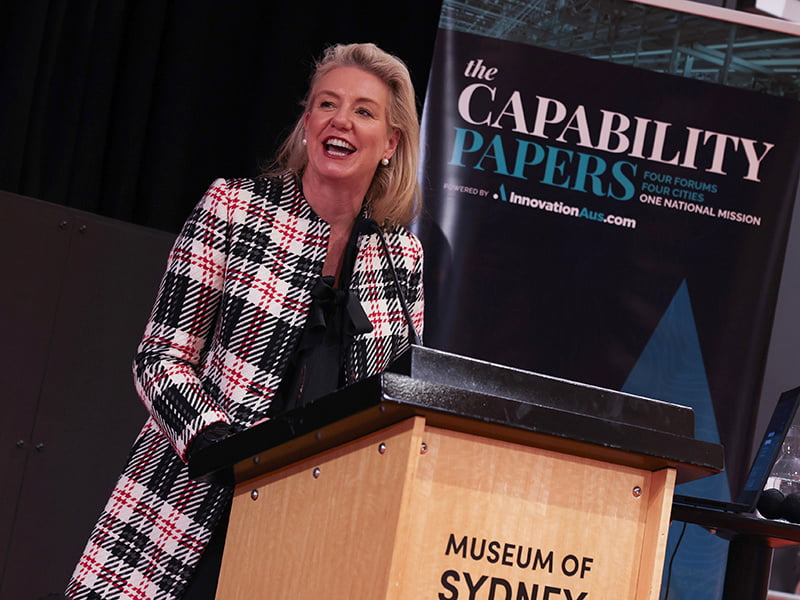The leader of the Nationals in the Senate Bridget McKenzie has warned government against being too prescriptive about which technologies will successfully drive the transition to a net zero economy by 2050.
Senator McKenzie, who is the shadow minister for Infrastructure, transport and regional development, said there were ideological arguments over technology that were getting in the way of outcomes.
This was particularly the case in dealing with decarbonisation issues in regional Australia, which she said would bear a disproportionate impact from the decisions made about energy transition in Australia.
Speaking at the InnovationAus.com Manufacturing and Energy Transition forum in Sydney this week, Senator McKenzie singled out transition issues in the heavy transport sector and on the shutdown of debate on nuclear energy as areas where ideology is getting in the way of decisions about technology.

On transport in particular, she said forcing the trucking industry to shift to electric vehicles without proper consideration of other emission or renewable technologies would be a poor outcome, with EV trucks unsuited to the regions.
“There’s a huge push from some quarters for EVs as a solution to the transport sector’s emissions,” Senator Mc Kenzie said.
“But why dictate that one technology is going to provide the low emission transport future that we all seek?
“If we focus on the outcome, there are multiple pathways to get there,” she said, pointing to hydrogen trucking as an obvious example but biofuels as well.
Regardless, the decisions about technology should be left to the industries and the businesses that must reduce their emissions to meet national targets.
Senator McKenzie, who’s academic background is in STEM with a double degree in science and teaching (specialising in mathematics), says people directly involved in regional industries are generally more intimate with working towards emissions reductions than those based in cities.
“The regions that I represent, and the industries that underpin not just regional communities but also the 9 million inhabitants of capital cities, are also the industries that underpin our economic future,” she said. “[The region’s] are going to bear the impact of the nation’s decision to transition to a low emissions economy. That is a fact.”
“We need to make sure that we do take no one is left behind in our transition. It’s not too late.
“The government has the option of putting ideology to one side, working constructively with our researchers, our regional communities, and our industries to progress pragmatically to a low emissions future at a measured pace, adequately supported by government when needed.
“By adapting and adopting, we can best ensure the regions have the capability to not just transition, but to capture the opportunities that will eventually be created in this new future.”
On nuclear energy, she said that there should at least be consideration given the use of SMR (small modular reactor) technology located near existing coal-fired power stations as a way to make use of existing electricity transmission infrastructure.
Senator McKenzie said the Nationals’ heritage included an ingrained understanding of the importance of scientific research to industrial progress – including in the farming sector.
Credentialing the Nationals to the forum on Tuesday, Senator McKenzie reminded the audience of entrepreneurs and innovators that it was the former Country Party leader Earle Page (the Country Party being a pre-cursor party to today’s Nationals) that found a way in 1926 to permanently fund a Council for Scientific and Industrial Research (CSIR).
Page is a hero of regional politics in Australia (and a former Prime Minister). The CSIR became the Commonwealth Scientific and Industrial Research Organisation (CSIRO) in 1949.
Do you know more? Contact James Riley via Email.

